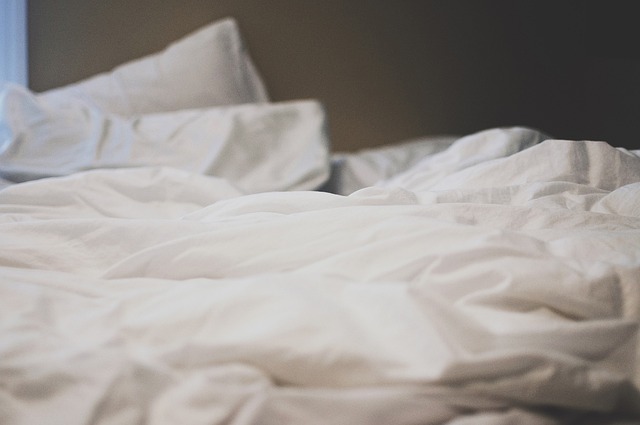
Is it better to sleep without a pillow
Sleeping is essential for our overall well-being. The quality of our sleep is directly related to the type of bedding we use. For many of us, sleeping without a pillow may seem unconventional. But is it really beneficial for our health? In today’s blog post, we will discuss the advantages and disadvantages of sleeping without a pillow. We will dive into the science behind the use of pillows. How they affect our posture, and the potential benefits of sleeping without one. Whether you are a stomach sleeper, back sleeper, or side sleeper, this blog is for you.
Spinal alignment and sleep posture
Spinal alignment and sleep posture are crucial factors that determine the quality of your sleep and overall health. Sleeping without a pillow can improve spinal alignment and reduce strain. Your head and neck are naturally aligned with your spine, when sleeping on your back without a pillow, . This helps to distribute your body weight evenly. This can also reduce the risk of developing chronic pain and spinal disorders. However, it’s important to note that sleeping without a pillow may not be suitable for everyone. Those with certain medical conditions such as sleep apnea or acid reflux. Therefore, it’s recommended to consult a healthcare professional before making any changes to your sleep posture or pillow usage.
Neck and shoulder pain prevention
One of the most common reasons for neck and shoulder pain is poor sleep posture. Sleeping with the wrong pillow, or no pillow at all, can worsen this issue. However, whether it is better to sleep without a pillow depends on your individual needs and preferences. Your neck may not be properly supported without a pillow, leading to discomfort and strain. On the other hand, a pillow that is too high or too firm can also cause discomfort by elevating the head too high or not providing enough cushioning.
The key to preventing neck and shoulder pain while sleeping is to find a pillow that properly supports your head and neck in a neutral position. This can help relieve pressure and tension in these areas, leading to better sleep and less pain upon waking. It is also important to keep good posture during the day by avoiding slouching and regularly stretching the neck and shoulders.
Increased blood circulation and oxygenation
When it comes to sleeping without a pillow, there are several potential benefits to consider. One benefit is increased blood circulation and oxygenation. By sleeping without a pillow, your head and neck are able to align more naturally with the rest of your body. This can help to reduce pressure on the blood vessels and nerves in your neck, allowing for better blood flow and circulation. Improved blood circulation can also increase oxygenation to your brain and other vital organs.
This can help to improve overall health and well-being. Individuals who experience neck pain, headaches, or other circulation-related issues. Sleeping without a pillow may be worth considering as a potential solution. However, it is important to consider your individual needs and preferences before making any changes to your sleep routine.
Improved digestion and breathing
There is evidence to suggest that sleeping without a pillow can lead to improved digestion and breathing. Proponents of this theory argue that using a pillow can cause the head and neck to be positioned at an unnatural angle, leading to issues like acid reflux and snoring. By sleeping without a pillow, the airways and digestive system can remain in a more neutral position. However, it is important to note that there is no one-size-fits-all solution when it comes to sleep posture.
Some individuals may find that sleeping without a pillow causes discomfort or pain. Individuals should experiment with different sleep positions and pillow types to find what works best for their unique needs and preferences. Consulting with a healthcare professional can also supply valuable insight into the potential benefits and risks of sleeping without a pillow.
Consultation with a specialist
When considering whether it’s better to sleep without a pillow, it’s important to seek advice from a specialist. Consulting with a healthcare professional, such as a physician or physical therapist, can provide valuable insight into the best sleeping position and pillow use for your individual needs. These specialists can evaluate any underlying medical conditions, such as neck or spine issues, and supply personalized recommendations to help alleviate pain or discomfort. Additionally, a specialist can recommend the best type of pillow for your preferred sleeping position, whether you sleep on your back, stomach, or side. Ultimately, seeking expert guidance can ensure you make informed decisions about your sleep health and overall well-being.
In conclusion
The decision to sleep with or without a pillow is a personal choice that depends on individual preferences and health conditions. While some people may find that sleeping without a pillow improves their sleep quality and reduces neck pain, others may need a pillow to support their head, neck, and spine alignment. It is important to consult with a healthcare provider or a sleep specialist if you experience chronic pain or discomfort while sleeping, as they can provide personalized advice and recommendations based on your specific needs. Ultimately, the goal should be to find a comfortable sleeping position and environment that promotes restful, restorative sleep.


